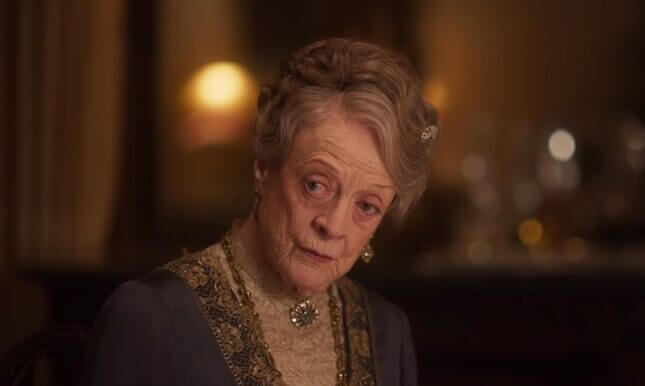
Screenshot: Focus Features
In the Downton Abbey movie, Lady Mary’s stalwart maid Anna (Joanne Froggatt) assembles the house’s servants in the wine cellar for a covert meeting about their working conditions. I felt a familiar thrill watching Anna and the others slip away quietly to discuss what was wrong and what they were going to do about it, because in the past few years—the years Downton has been off the air, mostly—I have participated in many of these meetings, as a member of this company’s chapter of the Writer’s Guild of America East. It was recognizably an organizing meeting, the kind of meeting that drove the plot of North and South, a Masterpiece Theatre cult classic that never received the wide attention of Downton. (North and South also featured Brendan Coyle, the same actor who plays the valet Mr. Bates as Nicholas Higgins, a fiery labor organizer in an unforgiving Northern English mill town).
Spoilers ahead.
But in this scene, Anna, her husband, and the others weren’t organizing to press for better wages or to protest poor conditions. Instead, the servants gather to defend the honor of the house, under attack from the troop of servants who arrive in preparation for a visit from King George V and Queen Mary, the story that drives the film’s plot. The servants from the royal household believe the Downton servants unequal to the task of hosting the king and queen. So the Downton servants hatch a plot to disrupt the royal servants, to prove their skills at cooking, dinner service, and all the other staging demanded by the pageantry of the monarchy.
-

-

-

-

-

-

-

-

-

-

-

-

-

-

-

-

-

-

-

-

-

-

-

-

-

-

-

-

-

-

-

-

-

-

-

-

-

-

-

-








































